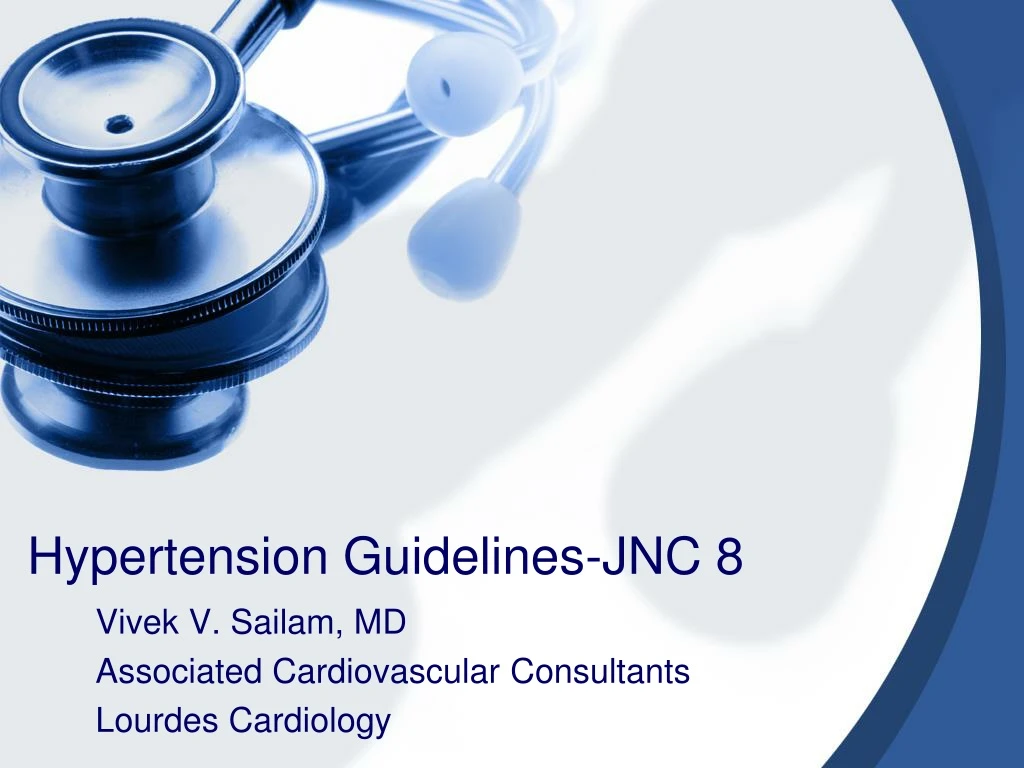In the realm of medicine, guidelines play a pivotal role in steering clinical practice, ensuring standardized approaches to diagnosis, treatment, and management. Among these, the guidelines established by the Joint National Committee (JNC) for the prevention, detection, evaluation, and management of high blood pressure (BP) hold particular significance. Over the years, these guidelines have undergone numerous revisions, reflecting advancements in research, evolving understanding of pathophysiology, and the emergence of new therapeutic modalities.
The Evolution of JNC Guidelines
The history of JNC guidelines traces back to 1977 when the National Heart, Lung, and Blood Institute (NHLBI) convened the first expert panel to address the rising concern of hypertension. Subsequent iterations, marked by periodic updates and revisions, have continued to refine recommendations, striving for optimal patient outcomes while considering factors such as efficacy, safety, and cost-effectiveness.
Key Highlights of the Latest JNC Guidelines
The JNC released its most recent set of guidelines, encapsulating the latest evidence-based insights into the management of hypertension. These guidelines represent a culmination of extensive research, clinical trials, and expert consensus, offering clinicians a roadmap for navigating the complexities of BP management. Let’s delve into some of the key highlights:
1. Blood Pressure Classification and Thresholds
One of the fundamental aspects of the JNC guidelines is the classification of BP levels and the determination of thresholds for diagnosis and treatment. The latest guidelines refine these parameters, taking into account not only numerical values but also individualized risk assessment. By stratifying patients into categories such as normotension, elevated BP, and hypertension, clinicians can tailor interventions based on the degree of cardiovascular risk.
2. Lifestyle Modifications
Emphasizing the importance of lifestyle modifications as cornerstone therapy, the latest JNC guidelines underscore the role of diet, exercise, and weight management in BP control. Recommendations regarding sodium intake, the DASH (Dietary Approaches to Stop Hypertension) diet, physical activity, alcohol consumption, and smoking cessation are meticulously outlined, reflecting the holistic approach required for comprehensive hypertension management.
3. Pharmacological Interventions
In the realm of pharmacotherapy, the latest JNC guidelines offer updated recommendations on the selection and titration of antihypertensive medications. From diuretics and beta-blockers to ACE inhibitors, ARBs, calcium channel blockers, and newer agents, the guidelines provide nuanced insights into drug classes, combinations, and individualized treatment algorithms. Furthermore, considerations such as potential adverse effects, drug interactions, and special populations are addressed to optimize therapeutic outcomes.
4. Cardiovascular Risk Assessment
Recognizing hypertension as a significant risk factor for cardiovascular disease (CVD), the latest JNC guidelines advocate for comprehensive risk assessment beyond BP measurements alone. Integrating tools such as the Framingham Risk Score, QRISK, or ASCVD (Atherosclerotic Cardiovascular Disease) calculator enables clinicians to evaluate global cardiovascular risk, guiding therapeutic decisions and preventive strategies tailored to the individual patient.
5. Special Populations and Comorbidities
Hypertension management extends beyond the general population, necessitating considerations for special cohorts and comorbid conditions. Whether addressing hypertension in pregnant women, older adults, individuals with diabetes, or those with renal impairment, the latest JNC guidelines provide nuanced recommendations tailored to unique clinical scenarios. Strategies for managing hypertensive emergencies, resistant hypertension, and secondary causes are also elucidated to assist clinicians in navigating complex cases.
Challenges and Controversies
Despite the meticulous synthesis of evidence and expert consensus, the latest JNC guidelines are not immune to criticism, controversies, and challenges. Debates surrounding optimal BP targets, the role of specific drug classes, and the interpretation of clinical trial data continue to fuel discourse within the medical community. Moreover, disparities in healthcare access, socioeconomic factors, and patient adherence pose formidable obstacles to the implementation of guideline-concordant care.
Future Directions and Emerging Paradigms
Looking ahead, the landscape of hypertension management is poised for continued evolution, driven by advances in technology, pharmacotherapy, and personalized medicine. From the integration of digital health tools for remote monitoring to the advent of precision medicine approaches tailored to genetic profiles, the future holds promise for more effective, patient-centric strategies in combating hypertension and its associated complications.
Conclusion
In conclusion, the latest JNC guidelines represent a milestone in the ongoing quest to optimize hypertension management and reduce the burden of cardiovascular disease worldwide. By synthesizing the latest evidence and expert consensus, these guidelines provide clinicians with a robust framework for navigating the complexities of BP control. However, translating guidelines into practice requires a multifaceted approach, encompassing patient education, interdisciplinary collaboration, and ongoing research to address remaining uncertainties and refine therapeutic strategies. Through continuous dialogue, innovation, and a steadfast commitment to evidence-based medicine, we can strive towards a future where hypertension is effectively controlled, and cardiovascular morbidity and mortality are significantly attenuated.


